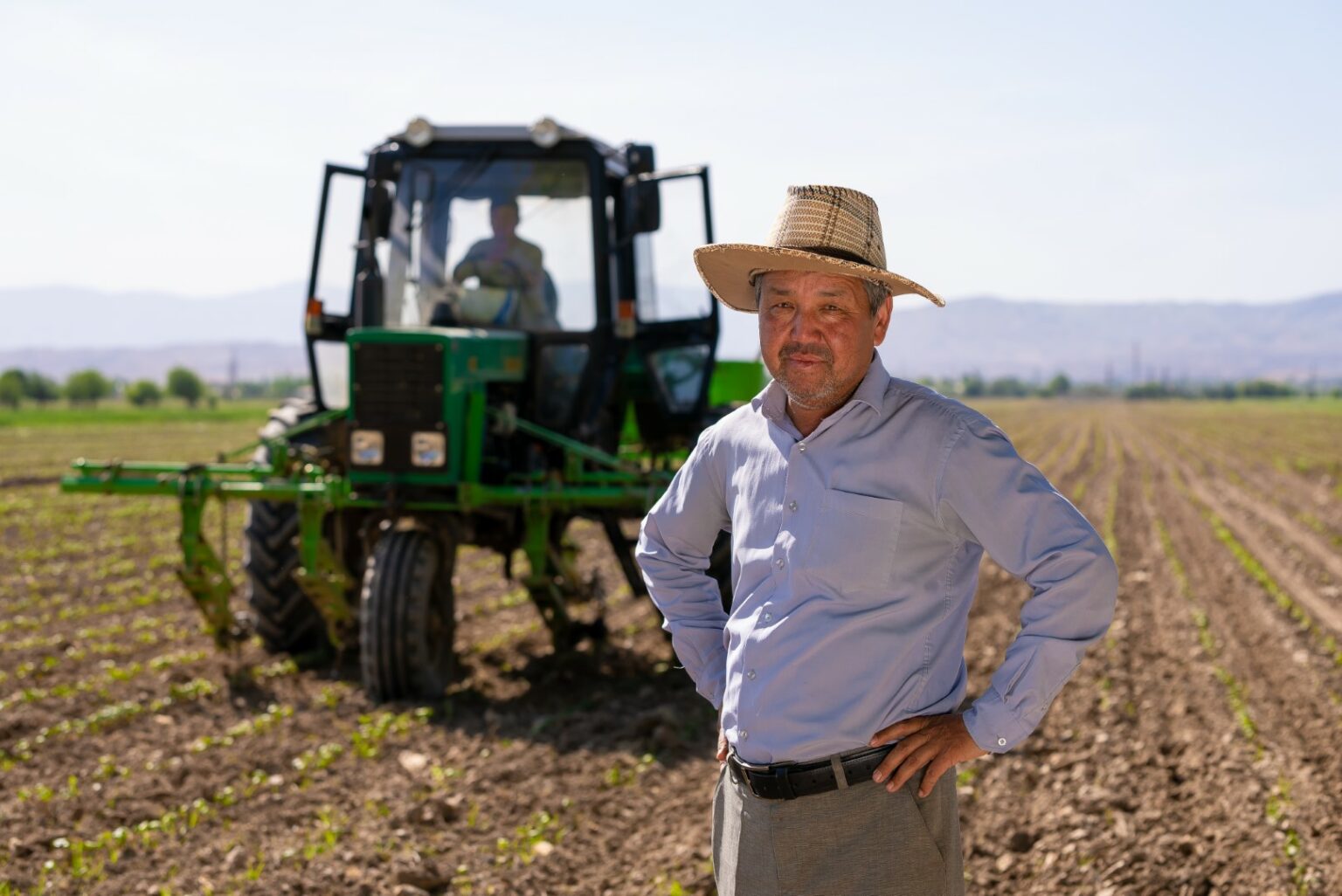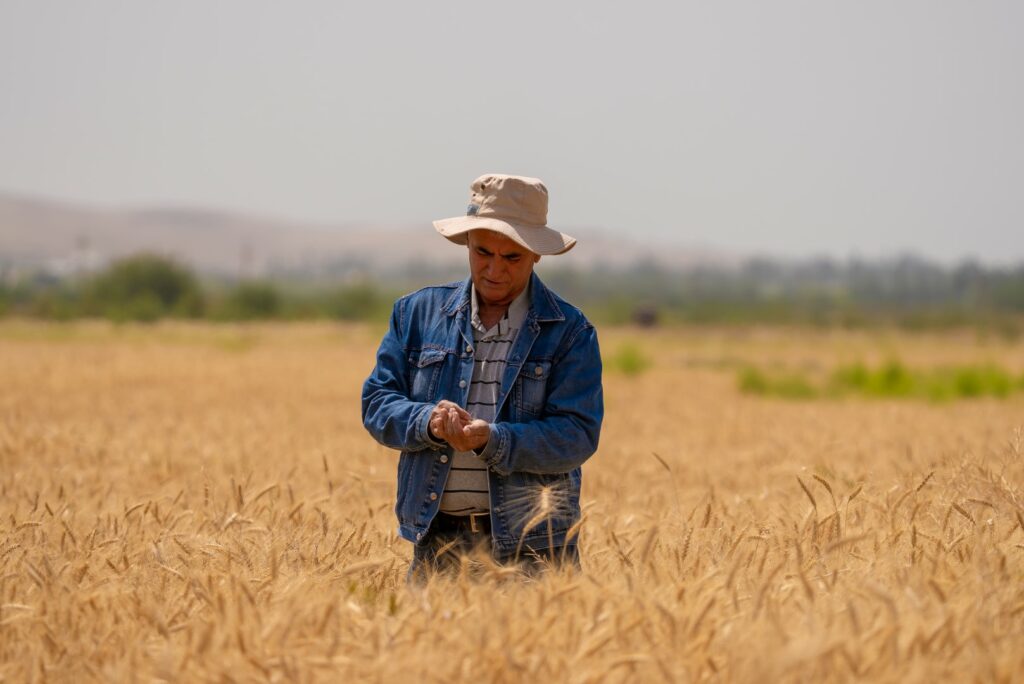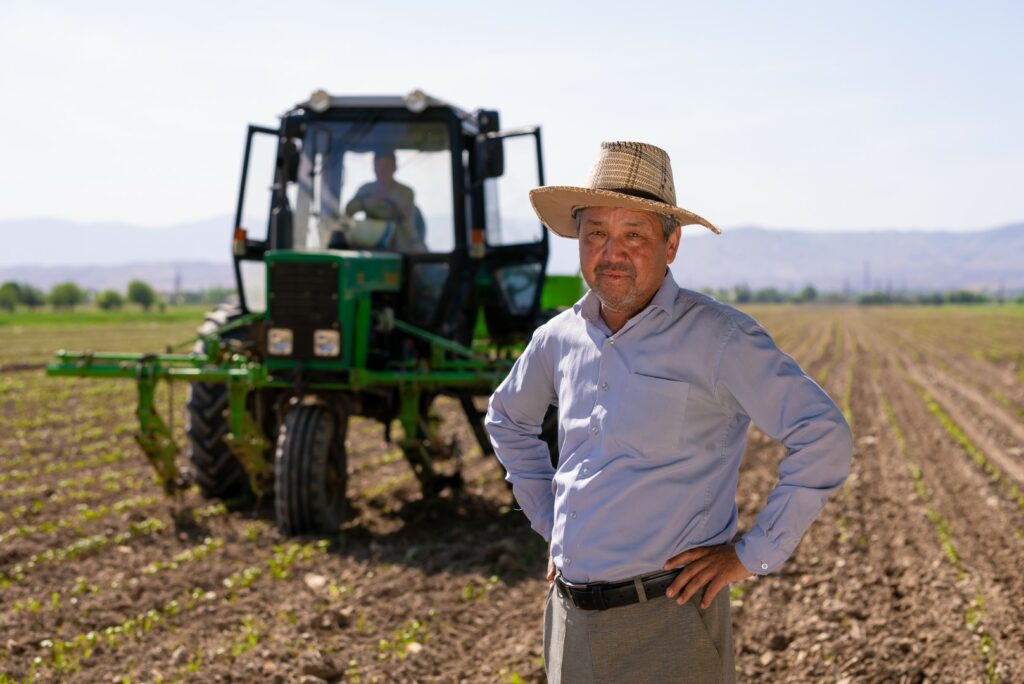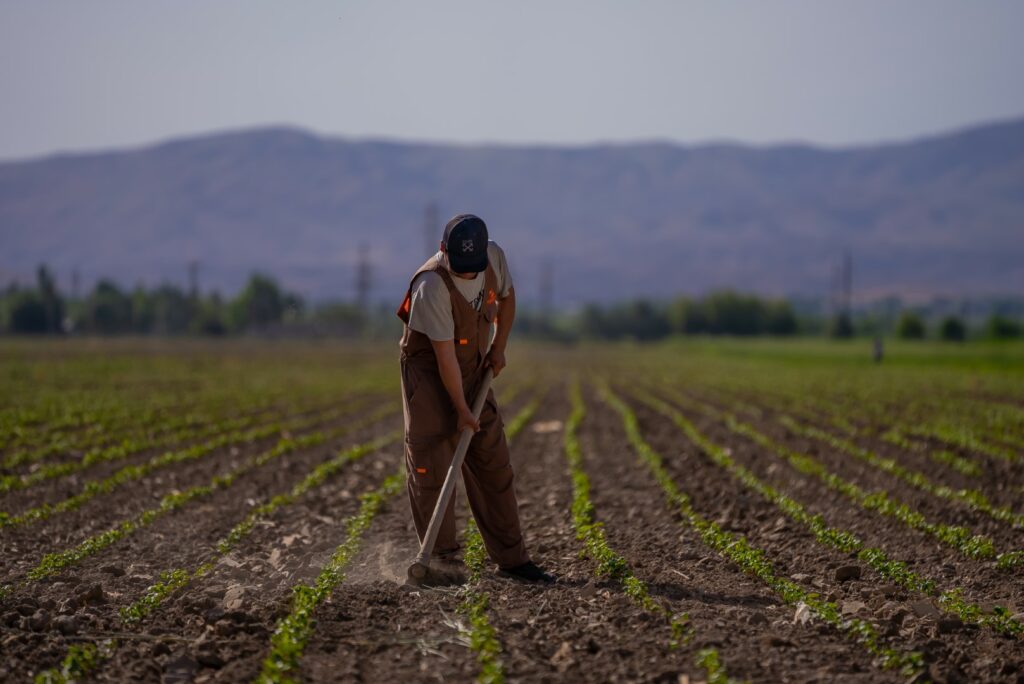Taking care of nature, people began to grow organic cotton – what is it? It is a fiber made without the use of chemicals. They are grown using technologies that are not harmful to nature or humanity, but rather reinforce them. There are very few organic cotton fields in Tajikistan now, but their number is increasing rapidly day by day thanks to one man and his company. Sergej Nicolaisen, a Norwegian, launched Farnico Tajikistan in 2020. The team at Farnico provide competent services to farmers in cultivating organic cotton through mutually beneficial cooperation to improve the quality of life and health of future generations and the environment. Cotton is tricky, plump and fluffy, delicate white, and remains one of the most labor-intensive crops. The cotton plant lives for two hundred days and requires continuous care: weeding and watering. And organic cotton requires special care.
Majid Qudratov started his farming activities in the early 2000s and is one of the farmers of Farnico Tajikistan. Majid is a simple, good-natured and hospitable man. Many people in Yavan know him and respectfully call him Majid aka. He has four sons and they all help their father in growing organic cotton, because organic agriculture requires more labor than conventional. When I asked what makes organic cotton different from conventional, Majid aka answered as follows:
“- no chemical fertilizers of any kind are used in cultivation. On the fields there is a strict control with certain criteria. The Farnico field agronomist for our district, Umar, is in control. One of the criteria for the selection of land fields is an environmentally friendly area, so that there are no plants in the area that are detrimental to the environment.
– crop rotation is observed – in one plot of land we grow several types of plants. This contributes to the natural renewal of the soil. We use natural fertilizers like manure, also in winter we plant rape seeds as cover crops. They contribute to the storage features of the earth and infuse the plant with all the nutrients.
– genetically modified seeds are prohibited”
Next, we learned that Farnico has hired experienced agronomists for the areas where it operates. Akai Umar, field agronomist for the Yavan area, explained that only when all of these conditions are met does an auditor from the certification agency travel to Tajikistan and visit the fields, and check that these conditions are being met. Further, a sample is collected of each field’s product, which is then taken to a laboratory in Europe where they check that it is GMO and pesticide free. Only after that, does the farmer’s field receive either in-conversion or organic status, depending on the amount of years it has been cultivated under the principles of organic farming. Majid aka recalled his first meeting with Farnico’s representatives:
“When Farnico representatives held introducionary training for potential farmers from different districts of our area, I was also invited. I participated with interest and decided to fill out a questionnaire. Since this was a new field for me and I wanted to take risks. The first year I grew organic cotton in an area of 10 hectares. This year it is 17 hectares. We get three to three and a half tonnes of cotton from each hectare. And another advantage of organic cotton is that you spend less and get more income. In addition, in the first year of the income I was able to buy a new tractor. And the income received motivates us to work more and try to grow a quality product. For us farmers, it is very convenient and profitable to work with Farnico. Because it provides us with fuel and teaches us how to make our own fertilizers, which are very necessary for us. In the previous years, I had to take out a loan to buy fuel and fertilizer, which was not profitable. Because it’s hard for a farmer to take out a loan and pay a commission on it. And Farnico itself provides and at the end of the year minus the production provided by us. I’m glad I was lucky enough to work with them”.
Majid’s children are also interested in continuing their father’s work, he said. And already his little grandson Hojisharif always goes with his grandfather to the field. His family can play in the fields freely, without fear of contamination by toxic chemicals or pesticides found on conventional fields. After the transition to organic farming, Majid’s income has increased significantly. In addition, the quality of life of those who work with him has improved as well. Majid aka started to grow other crops in organic land.
Organic cotton is completely safe for humans and the environment. By supporting initiatives like this and companies like Farnico we are all contributing to the preservation of nature and improving the prosperity of hundreds of families every day.
Based on the above words we can conclude that Farnico is on the right track and it contributes significantly to the development of organic farming in Tajikistan and the achievement of the UN SDGs.



